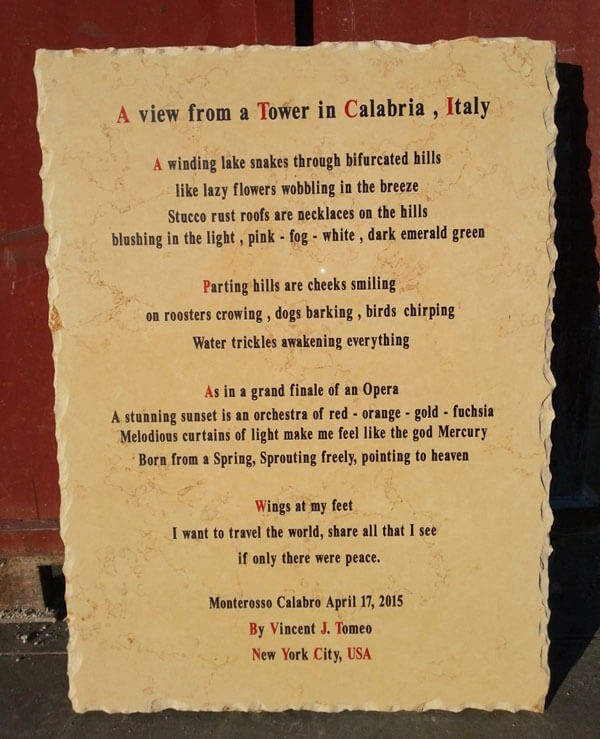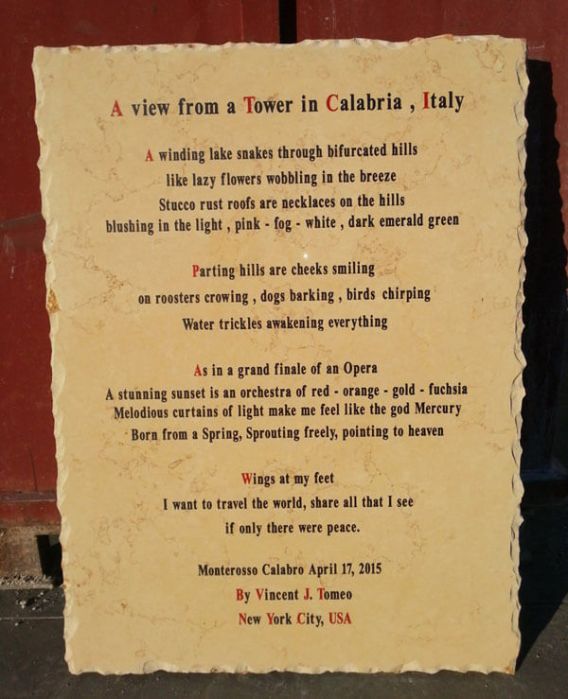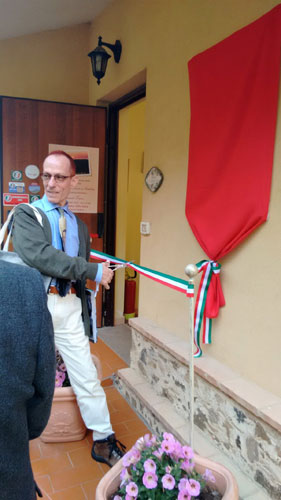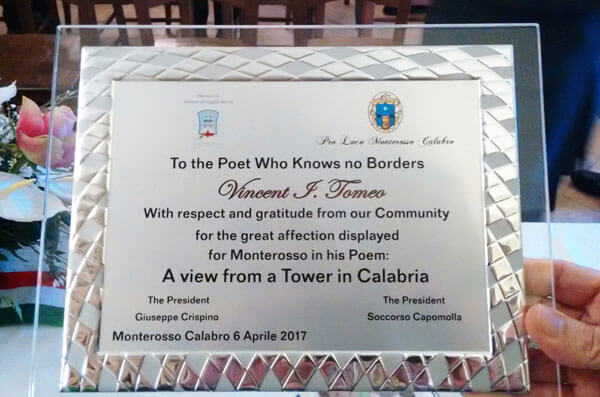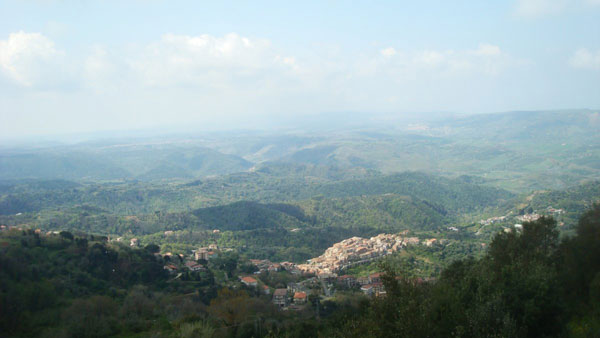By Tammi Scileppi
Flushing poet Vincent J. Tomeo has given Monterosso Calabro – the bucolic, rustic town that inspired his most acclaimed poem “A View from a Tower in Calabria, Italy” — a place in the sun.
After his trip to that quiet corner of the world back in April 2015, Tomeo’s host and friend Antonio Parisi, a well-known patron of the arts, told him he had been so moved by his verse that he decided to have it engraved in marble and mounted at his Agriturismo Villa Velia for the townspeople to admire. The well-traveled poet had stayed at the villa and climbed up to the tower overlooking the sea, where he was inspired by the vista to write the poem.
That unusual set of circumstances made headlines in Italy, and the award-winning bard, who has 746 published poems and essays under his belt, was recently honored during a festive ribbon-cutting ceremony, unveiling, and poetry-reading event at the villa. It was hosted by Parisi and attended by other dignitaries and locals as well as the Italian press and mayor’s office.
After all, it isn’t every day that an American poet from the World’s Borough gets a big thumbs-up from a historic Italian city that appreciates his unique talent.
Tomeo could not believe the warm welcome he received when he returned to Calabria for that celebration in early April.
“As I entered the village, posters lined the roads leading to the villa, announcing the ceremony. People gathered at the site, where a red veil covered the marble plaque mounted on the wall of the villa leading to the entrance to the tower, where I penned my poem,” said Tomeo, who recalled that the area was blocked off by red, white, and green ribbons, the colors of the Italian flag.
“The American and Italian flags flew over the villa and were draped on walls and tables everywhere. It seemed that the whole village was there to greet me. They showered me with warmth, friendship, and loving kindness. I was simply overwhelmed.”
After reading his poem in English, Tomeo said an Italian professor read it in Italian and the Calabrian dialect. And he was even awarded a plaque that read: “To the Poet Who Knows no Borders” — with respect and gratitude from Monterosso.”
“This extraordinary event will stay with me for the rest of my life, and once again I fell in love with Calabria,” said Tomeo, who has done readings in many countries, while seeing the world.
In his heartfelt speech during the ceremony in Calabria, Tomeo said:
“Words have significance. They are windows of the mind. This poem is not just a plaque on a wall, but a bridge between two nations. The rustic beauty of nature is extraordinary; the people are kind, warm, family-oriented, friendly; all these makes it a welcoming place, and of course the food.”
A lot has happened since that memorable visit.
According to Tomeo, the original March 2017 TimesLedger story about his visit to the villa is being translated into Roman Italian and Calabrian dialect, and will be showcased by the Association Pro Loco of Monterosso (chamber of commerce), and the Association Familia de Rubro Monte (cultural association) in Calabro, Calabria, on its website and displayed for the general public.
A poetry workshop — “Poets without Borders” — is in the works. Tomeo said Parisi as well as local dignitaries, would like to establish the workshop at the villa. Along with several professors, the town’s poet-in-residence would conduct, teach, and coordinate classes.
But that’s not all.
Renaissance historian Barbara Lafratta is in the process of painting the bard’s portrait.
And, thanks to recent publicity swirling around the poem, a new wave of tourists vacationing in Calabria have been staying and dining at the now famous villa, according to Parisi, who said, “They too were awed by the view from the tower.”
So much had happened that when Tomeo returned to his Maple Avenue apartment in Flushing, the former Francis Lewis High School teacher, and one-time archivist, historian and community activist, took a moment to sit down, relax, and write a special ode to an unforgettable place.
Here I sit in my apartment in Flushing, Queens.
Outside, the noise of the people going to and fro.
Mind beginning to wonder what I do not know.
Of another world, place, singing an Italian folk song
and how the whole village and I connected.
How a poem could generate/create an “Alice in Wonderland” experience
of laughter, food, songs, Sofia the cat and Bernardo the dog and so much joy
and so much more, I know not.
Oh, the power of words.
As the sun streamed through my window like arrows, I reflected on how it all came to pass,
and a new poem emerged.
A poem has consequences. A poem is a bridge one can, must cross. On the other side, more is yet to come.
Tomeo said he learned the Italian folk song, which turned out to be a Calabrian folk tune, on the streets of Corona.
You can’t help but wonder at the remarkable and unexpected sequence of events that were set into motion by a simple poem – which made it possible for a mild-mannered New Yorker from Queens to become a poet who knows no borders… del poeta senza frontiere.

